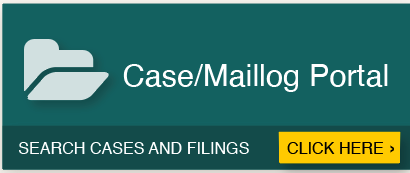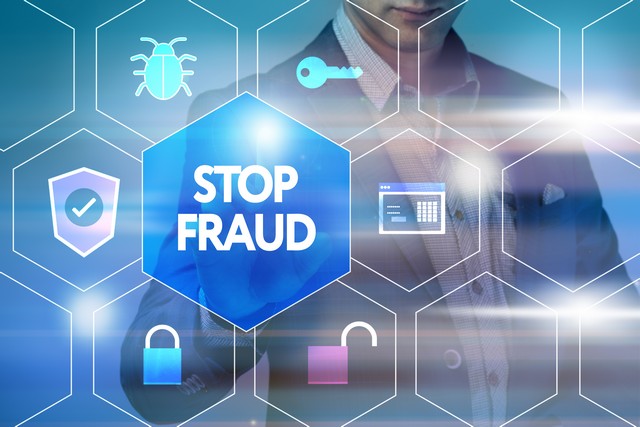FAQs
- Which utilities are regulated by the Public Service Commission?
- How do I get help with a complaint about a utility company?
- What kind of problems can the Consumer Assistance Office help me with?
- Does the Office of External Relations provide money to help me pay my utility bills?
- My gas and/or electricity bill is too high – what should I do?
- How do I obtain copies of information relating to utilities and Commission cases from the Public Service Commission?
- How do I participate in public hearings and public administrative meetings?
- Which utilities are regulated by the Public Service Commission? The Commission regulates gas, electric, gas and electric, telephone, for-profit water and sewage companies, and common carriers, such as charter bus, van and limousine companies transporting persons for hire within Maryland, and taxicabs in Baltimore City, Baltimore County, Hagerstown and Cumberland. Additionally, the Commission has authority to license gas and electric suppliers; adopt complaint procedures; and establish consumer protection standards concerning contracting, enrollment and the marketing of supplier services.Back to List of Questions
- How do I get help with a complaint about a utility company? First, you must contact the utility company to try to resolve the problem. It is required by law to assist you. If you are not satisfied with the company’s action, you may file a complaint with the Office of External Relations in Baltimore. (See Complaint Procedures.)Back to List of Questions
- What kind of problems can the Consumer Assistance Office help me with?The Consumer Assistance Office can investigate your inquiry or dispute if it concerns:
- utility rates and charges;
- a proposed or recent turn-off of service;
- responsibility for a bill;
- a request for a deposit;
- refusal of service by a utility;
- the quality and type of utility service;
- a utility’s policies and procedures; and
- utility installations.
Often, the Commission has very limited authority in certain areas, or shares regulation with other agencies. Some of the areas where the Office of External Relations MAY be able to help are:
- Interstate, international toll charges and/or pay-per call service charges for 900, 976 and 915 calls.
- Telephone “slamming.”
- Complaints concerning “live” telemarketing, interstate autodialed and artificial or prerecorded voice message telephone calls, and/or the use of facsimile machines for solicitation purposes.
The Office of External Relations CANNOT help with inquiries or disputes concerning:
- Merchandise sold to you by a public utility, repair or maintenance contracts for your heating and/or cooling equipment and Yellow Pages advertisements.
- Complaints against landlords/property owners concerning high bills, disconnection of service, etc.
- Complaints concerning bottled propane and/or oil companies;
- Complaints concerning your credit report and/or collection agencies;
- Complaint concerning the rates, quality of service or billing from your cable television provider; and
- Complaints regarding municipally-owned water companies.
- Does the Office of External Relations provide money to help me pay my utility bills? No. The Office of External Relations DOES NOT provide financial assistance or attempt to obtain funds for consumers. However, on a case-by-case basis, they will contact the utility to mediate payment arrangements and to obtain payment extensions, if possible. Upon request, they will provide you with a list of charities that may have funds available. Consumers may apply directly for Maryland Energy Assistance (1-800-352-1446) and the Fuel Fund for Central Maryland (410-547-7157). Additionally, all electric and gas utilities in Maryland offer a Utility Service Protection Plan (USPP) or an equivalent program to assist those having difficulty with utility payments. Please contact your utility for further information.Back to List of Questions
- My gas and/or electricity bill is too high – what should I do? First, you must contact the utility company to try to resolve the problem. It is required by law to assist you. If you are not satisfied with the company’s action, you may file a complaint with the Office of External Relations in Baltimore. (See Complaint Procedures.) Your complaint will be forwarded to the utility company for investigation and response.The utility company provides the Commission with information on the customer’s account to determine whether or not there is an obvious reason for the high bills. For instance, if your bills have been estimated, the utility must obtain an actual reading and issue an adjusted bill. The bill based upon the actual reading may be higher (or lower) than usual — depending upon whether or not your usage was under- or over-estimated.The utility can only measure the consumption of gas or electricity through an accurate meter. There are numerous variables which determine the amount of gas or electricity consumed at a residence, such as the efficiency of the heating/cooling systems and the appliances, the size of a residence, the home’s insulation, the outside temperature, and the consumption patterns of the customer setting the thermostat. Therefore, utilities are not required to determine how the service was used, just if it was used and recorded by an accurate meter.If you suspect that your meter is not registering accurately, you may ask the utility to test your meter. The Code of Maryland Regulations (“COMAR”) states that “upon request by a customer and at no charge, the utility shall make a test of the accuracy of registration of the meter serving him, provided that these tests need not be made more frequently than once in 18 months.” COMAR also states that you (or your representative) may be present when the meter is tested. The results of the test shall be provided to you within a reasonable time after completion of the test and the utility must retain a record of the test for at least three years.If you do not want the utility to perform the meter test, you may submit a written request to the Public Service Commission for a “referee test.” Your request must include your name, address, daytime telephone number, name of your utility company and type of meter to be tested (gas or electric). You will be contacted by a Commission Engineer to schedule the test.Your written request must be accompanied by a $10.00 check or money order made payable to the Public Service Commission. You should address your request as follows:
- Public Service CommissionEngineering DivisionWilliam Donald Schaefer Tower6 Saint Paul StreetBaltimore, MD 21202-6806
If the results of the referee test reveal that the meter is not measuring electricity consumption within the PSC’s prescribed 98% – 102% accuracy requirements, then a billing adjustment will be warranted for your account. Your $10.00 payment will also be refunded to you. However, if the referee test confirms your electric meter is operating within the PSC’s accuracy requirements, then no adjustment will be made to your account, and the PSC will retain the $10.00 fee for the referee test.
- How do I obtain copies of information relating to utilities and Commission cases from the Public Service Commission?
- Use these links to find the resources you need on the MD PSC web site or other state of Maryland web site:RegulationsFor utility tariffs, explanation of charges, etc., send us your request using the online complaint form or send your request to: Office of External Relations, Maryland Public Service Commission, 6 St. Paul Street, Baltimore, MD 21202; facsimile (410) 333-6088.
- Commission orders or other material from a case file can be downloaded here. If you are having trouble finding the document you are looking for, please call the Commission’s Docket Room at (410) 767-8080.
There is a 50 cents per page charge for duplication of documents.
- How do I participate in public hearings and public administrative meetings?
- If you wish to speak at a public hearing, you may attend and sign up to speak on the sign-in sheets that are always available at the Commission’s public hearings. It may be necessary for the presiding officer to limit the amount of time for each person’s presentation due to time restrictions on the facility.
- If you wish to speak at a public administrative meeting, you may attend and come forward to indicate your desire to speak when your item of interest is called by the Chairman or presiding Commissioner. Depending upon the number of individuals who wish to address the Commission, it may be necessary to limit the amount of time for each person’s presentation, or to otherwise entertain comments in an orderly fashion.
- If you are unable to attend a public hearing or meeting, but wish to express your opinion on a particular matter, you may send your written comments to:
- TerryJ.Romine,Executive SecretaryMaryland Public Service Commission6 Saint Paul StreetBaltimore, MD 21202-6806Or you can send your comments or questions using our online comment form here.







 1-888-373-7888
1-888-373-7888 233733
233733

